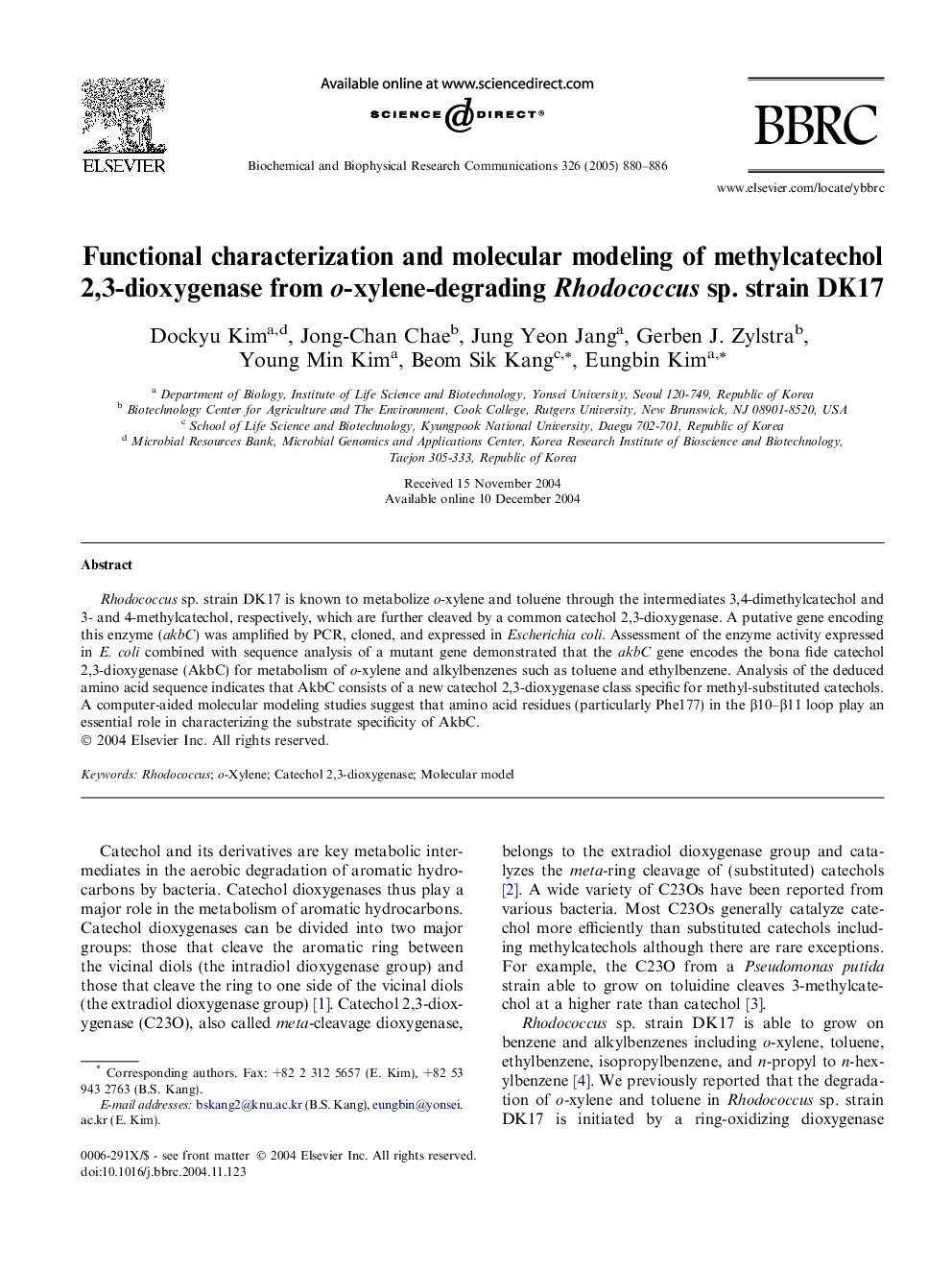| Article ID | Journal | Published Year | Pages | File Type |
|---|---|---|---|---|
| 10772018 | Biochemical and Biophysical Research Communications | 2005 | 7 Pages |
Abstract
Rhodococcus sp. strain DK17 is known to metabolize o-xylene and toluene through the intermediates 3,4-dimethylcatechol and 3- and 4-methylcatechol, respectively, which are further cleaved by a common catechol 2,3-dioxygenase. A putative gene encoding this enzyme (akbC) was amplified by PCR, cloned, and expressed in Escherichia coli. Assessment of the enzyme activity expressed in E. coli combined with sequence analysis of a mutant gene demonstrated that the akbC gene encodes the bona fide catechol 2,3-dioxygenase (AkbC) for metabolism of o-xylene and alkylbenzenes such as toluene and ethylbenzene. Analysis of the deduced amino acid sequence indicates that AkbC consists of a new catechol 2,3-dioxygenase class specific for methyl-substituted catechols. A computer-aided molecular modeling studies suggest that amino acid residues (particularly Phe177) in the β10-β11 loop play an essential role in characterizing the substrate specificity of AkbC.
Related Topics
Life Sciences
Biochemistry, Genetics and Molecular Biology
Biochemistry
Authors
Dockyu Kim, Jong-Chan Chae, Jung Yeon Jang, Gerben J. Zylstra, Young Min Kim, Beom Sik Kang, Eungbin Kim,
